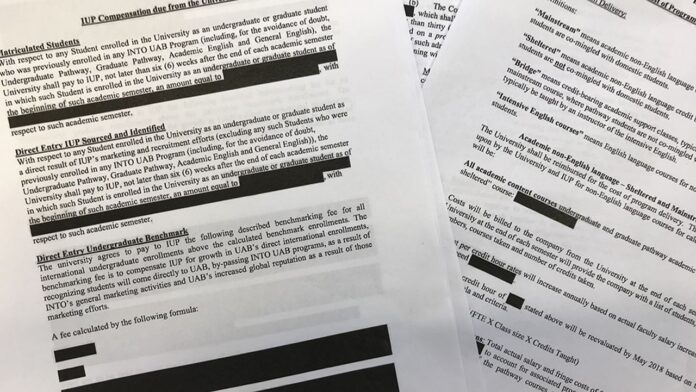You’ve probably heard something like this before: another national ranking, another instance when Alabama ranked dead last.
But I promise you, this one is different, and by the end of this column, I’ll explain how.
A couple of years ago, University of Arizona journalism professor David Cuillier set out to measure states by open record compliance.
Public records are important because they’re often the only way we can know for sure what our state and local governments are doing with our tax dollars. Without them, we have to take the word of public officials and politicians who have reputations for not always giving the public a clear picture of their own performance.
The first thing Cuillier needed was data, so he turned to Muckrock, a nonprofit which helps reporters and other researchers access public records.
Muckrock gave Cuillier a sample of 7,000 public records requests across 50 states and the District of Columbia. Cuillier then tallied how many of those requests yielded results and how long each state took to answer a typical request.
It wasn’t even close. Alabama landed in a familiar place—51 of 51.
Of the 126 Alabama open records requests included in the sample, the state had returned documents in just 10 percent of those.
To put that in perspective, Mississippi was 49th on Cuillier’s ranking with a response rate of 22 percent. Alabama couldn’t have overtaken its neighbor to the west if it doubled its performance.
That’s how badly the state did.
The records the state did return took their sweet time getting back. The average turnaround time for public records requests was 76 days.
Alabama is accustomed to landing at the bottom of rankings like these, but as I said, this time it’s different — or it could be different if our lawmakers get their act together.
If we were talking about education instead, or public health, we’d have to deal with poverty, intergenerational problems and government resources, and on and on; but not this time. Our officials can fix this with a couple of votes and a stroke of the governor’s pen.
On Wednesday, the Alabama Senate Judiciary Committee is scheduled to consider a bill that has appeared there before — a rewrite of Alabama’s Open Records Act that would give teeth to the law.
Currently, Alabama law says all citizens are entitled to inspect public records and take copies upon request, but the law doesn’t do much to make that happen. Public agencies frequently drag their feet over requests or ignore them altogether. The only recourse for requestors when that happens is to sue, which can rack up expensive legal fees quickly.
The rewrite, sponsored this year by state Sen. Arthur Orr, would set deadlines by which state and local government agencies must answer requests. It would limit what those agencies can charge for copies and “research fees.” Perhaps most importantly, it would create a public records ombudsman to mediate disputes between the public and officials. It creates a speedier appeals process which most folks can afford.
None of these measures are all that original. For the most part, the law has been modeled on open record laws in other states.
Previous versions of the open records rewrite have died in the committee. When I spoke with him last week, Orr said he wants it to be different this time. This time, he wants a vote, up or down, to put those state senators on the record where they stand–on the side of transparency and public access to public information, or the side of Alabama always coming in dead last.




























